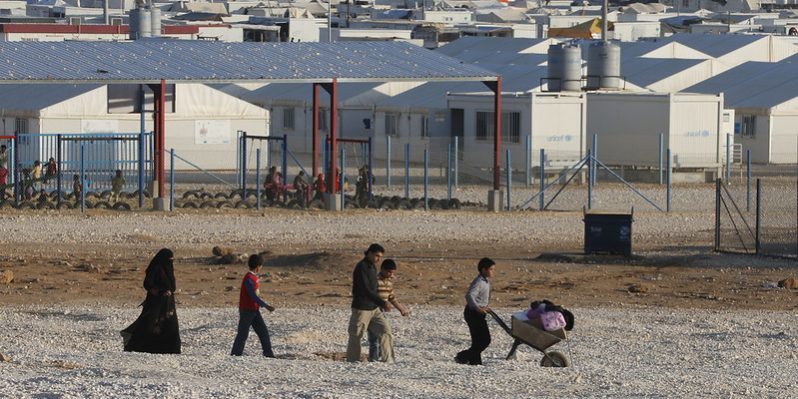Photo credit: Photo: Mohamed Azakir / World Bank
Authors: Patricia Bernedo, Siddharth Hari and Efşan Nas Özen
As the largest refugee-hosting country in the world, Türkiye has been addressing significant humanitarian challenges. However, the magnitude of the refugee and migrant influx poses substantial development challenges which are faced not only by the displaced populations, but also by the communities hosting them. Moving beyond humanitarian assistance to integrating refugees into the formal labor market has emerged as an important policy priority.
What Constrains Refugees’ Access to Formal Employment?
While there have been some efforts to integrate them into the formal labor market, a large proportion of refugees remain in the informal sector. On the supply side, low levels of education and skills, informational and language barriers are key constraints to accessing the formal labor market. On the demand side, employers find it relatively more difficult to verify the skill levels, and therefore expected productivity, of refugees. As a result, they are often not willing to pay the official minimum wage and the premiums and taxes associated with formally registering refugee workers.
Can Agriculture Offer a Solution?
The agriculture sector, with its relatively low skill requirements has the potential to absorb a significant share of the refugee population, but itself suffers from high levels of informality. Absorbing refugees in agriculture and ensuring favorable working conditions therefore requires a multi-pronged approach which addresses the root causes of informality in the sector through both demand and supply side interventions. This is the premise guiding the Agricultural Employment Support for Refugees and Turkish Citizens through Enhanced Market Linkages (FESAS) Project.
The Project draws on international best practices on supporting vulnerable populations and combines complementary interventions to increase the supply of skilled workers and encourage their formal hiring. On the labor supply side, the project focuses on enhancing workers’ skills through technical and soft skills training catered to the needs of farmers. In terms of technical skills training, vocational or on-the-job training programs are considered with a focus on crop-and/or task specific technical aspects as well as communication in the context of agricultural work and Turkish language, while skills highly demanded by farmers including teamwork, time-management, and organization are considered for soft skills training. On the labor demand side, enhanced use of contract farming and provision of technical assistance and incentives in the form of wage subsidies aims to increase farm productivity and boost formal job creation. The project also aims to boost labor demand through investments in the value chain, such as those for processing, packaging and storage, that aims to increase the demand for raw agricultural products.
Given its focus on labor market integration of vulnerable populations, this Project was supported by the Supporting Effective Jobs Lending at Scale (SEJLS) program, which aims to maximize benefits associated with labor market interventions of World Bank operations.
How SEJLS has supported the FESAS Project
- The development of a robust theory of change underpinning the Project.
- The preparation of supply and demand side analyses to identify the obstacles and constraints for refugees’ formal employment in the agriculture sector.
- Activities to inform the economic analysis, which allowed for the estimation of the cost effectiveness of the intervention.
- Preparation of a technical note describing a matching algorithm for agricultural labor markets to be used under the Project.
All of these outputs constitute a knowledge base for future projects under similar contexts.
The FESAS Project adopts an innovative approach to address the complex challenge of labor market integration of refugees. Lessons learnt from these SEJLS supported activities informed the implementation of the FESAS Project but are also relevant to similar interventions in other contexts. .
This is part of a series of blogs sharing insights from activities funded by SEJLS to support WBG operations in maximizing their impact on jobs. The next blogs will present lessons from other projects supported by SEJLS across several sectors of intervention.




